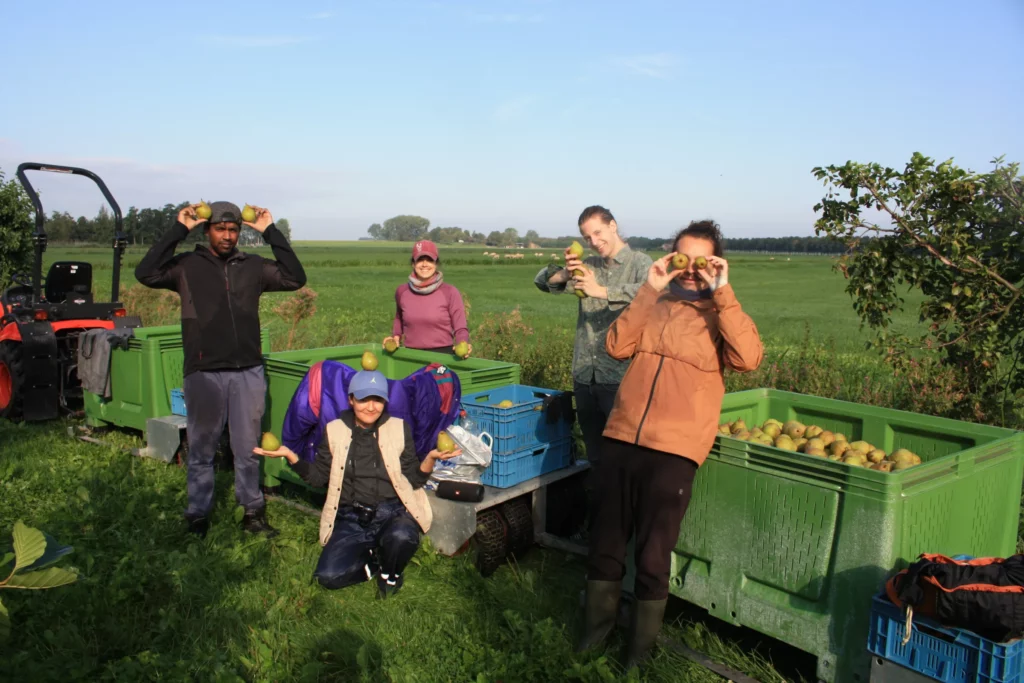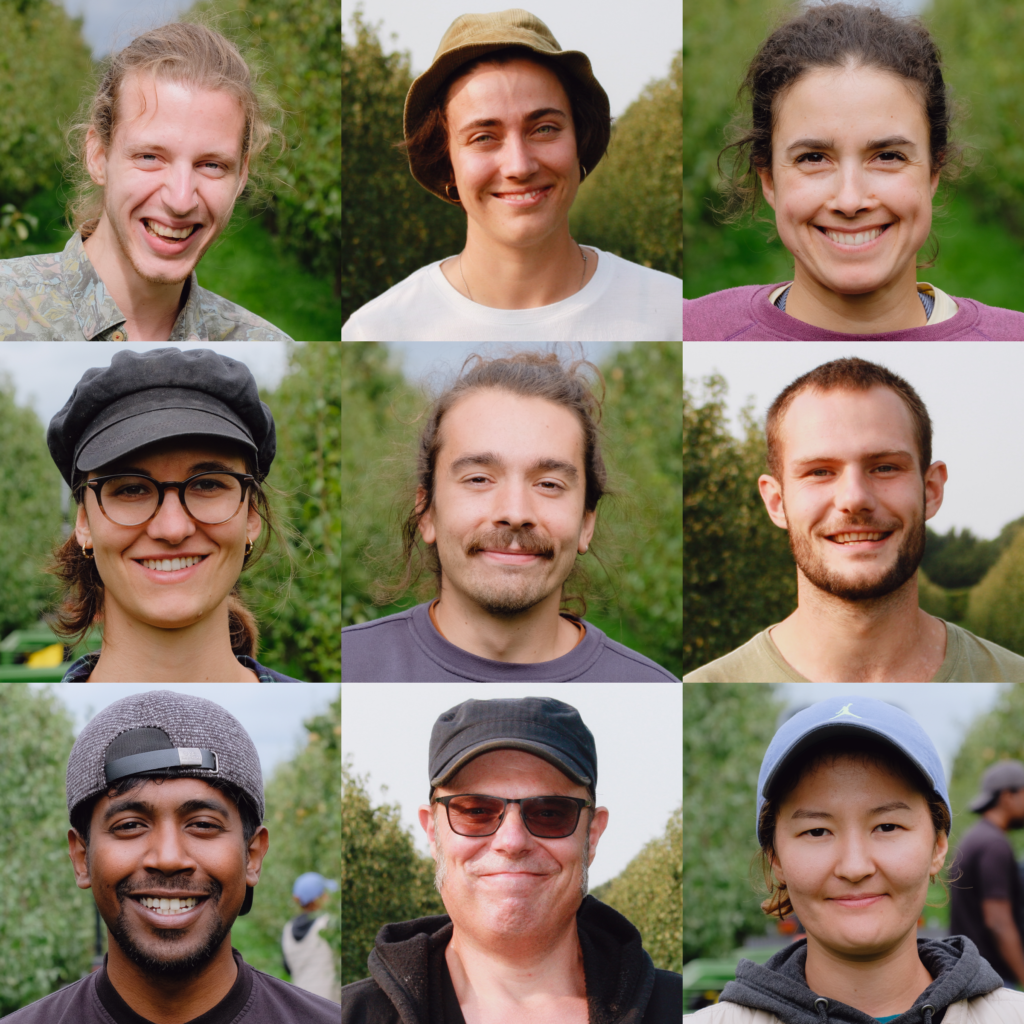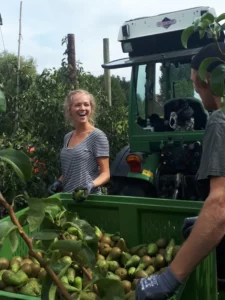Harvest Heroes 2020
By Maria Fritz, Local2Local Talents-coordinator
In the morning at ten past seven we leave Utrecht. The view is wonderful once we are out of the city. Green meadows with rising fog and the rising sun behind them. The Dutch landscape at its best. We arrive at the orchard at a quarter to eight, the air is fresh, boots and rain pants are put on. The mouth caps stay in the car, for the next nine hours we are in the open air. We step into the orchard. Rows of pears glisten in the morning dew, there is concentrated picking. Music plays in the background and the occasional short talk or joke is shared.
This was life for the pickers of Local2Local Talents during the 2020 pear harvest. And what did they think of it? “Delightful” is the consensus. It’s refreshing to work outdoors and physically, but they also learned a lot: “I’ll never just pick up a pear in the supermarket again without thinking ‘Wow, this has been picked by hand!’ It’s so much work! I really have a new appreciation for where my food comes from,” says Aida.
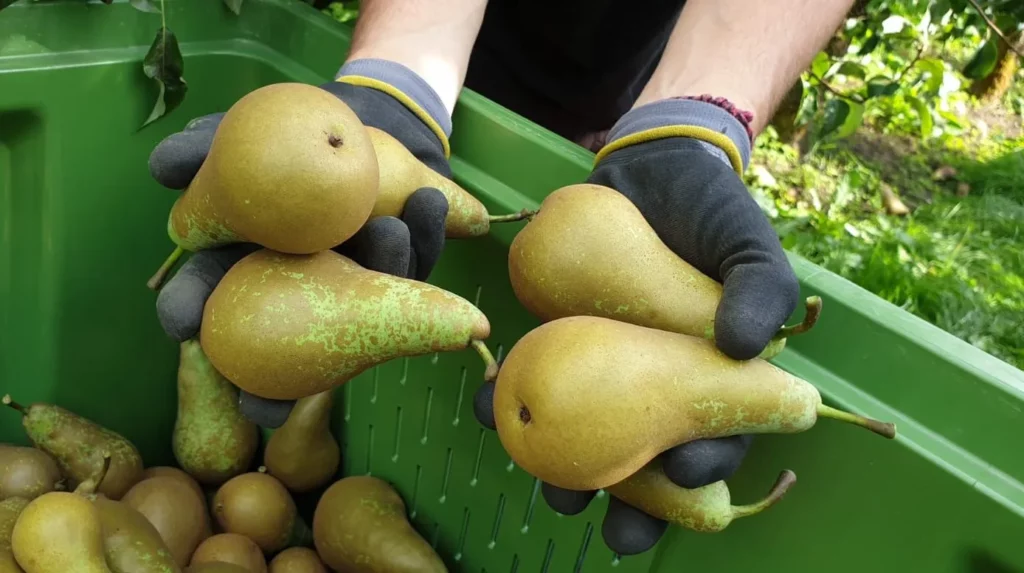
She was working throughout the harvest, which gave her a good rhythm during picking. This was fine for all the pickers, who worked more irregularly. Groups were formed from faster and slower pickers, but the daily goals were the same for everyone: at least two picking trains had to be filled! The Talents were able to schedule their working days flexibly, so that it was also possible, for example, to participate 2-3 days a week alongside studies.
The picking group was a good mixed group of Dutch and foreigners, from students who already have an idea of what needs to change in our food system to young people for whom it is a new topic. This led to interesting conversations with fruit grower William Pouw who visited regularly; why are most pears exported abroad? What are these red aphids, are they good or bad? By now they all know: just let the ladybugs walk, because they eat these aphids. And the Dutch find it hard to buy local, organic fruit if it doesn’t look perfect, but in France they love that very thing.
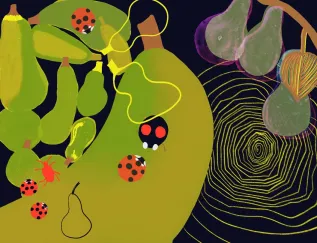
And did you know that the pears are browner this year because the weather was so variable in the spring? As a result, the pears were stressed and therefore had a browner skin. Many pickers especially found peace in the work. It gives time to chit-chat or to reflect in silence: “How meditative this is! You can’t sit on your phone anyway”. At the same time, picker Anurag, a student in Sustainable Development Energy Materials, devised a space-saving way to place pears in the boxes, allowing more pears to fit in a box. Perhaps this can be used further in the next crop. Picker Aida, a graduate student in Gender Studies, put her impressions of the pear picking and also of the aphids into illustrations, which you can see here.
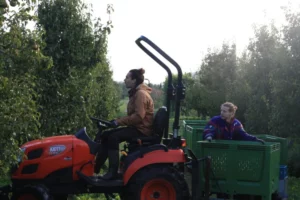
During breaks, pear recipes were exchanged and occasionally delicious homemade food was shared with each other. This was all done remotely, thanks to being outside. In the end, we finished the picking within 2.5 weeks. We celebrated this with a social drink at Grounded’s fortress, where inevitably delicious Utregs Supersap from William’s orchard could also be enjoyed.
Everyone’s satisfaction was complete with the thought that the pears they picked will end up in the next batch of bottles and that people will buy “their” pears. That is a valuable feeling they will never forget. Completely different from submitting a paper in college, right? The 2020 pickers are the pioneers. They are proving that it is worth using local, young talents for ‘something like this’ as well. Their awareness and appreciation of food is simply changed by this work. And fruit grower William? Who may have had slightly less fast pickers, but he had a lot of fun and he sees it as an investment in a future food system that adds value in a sustainable way.
